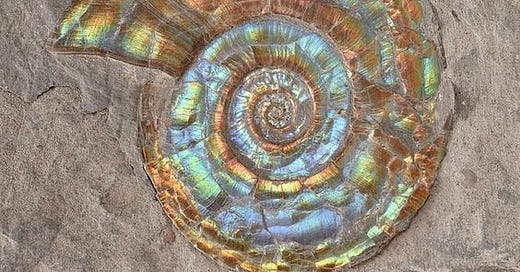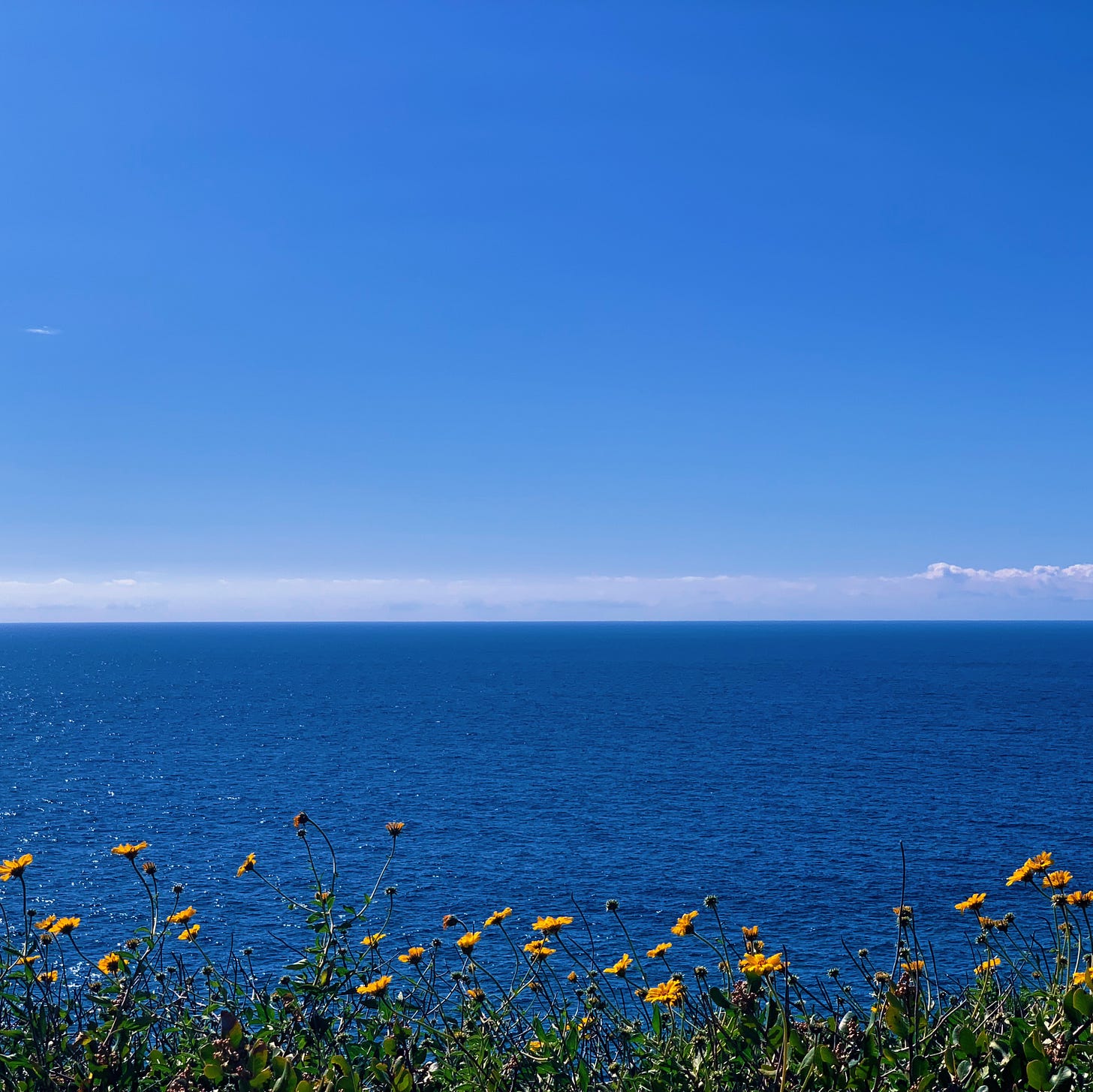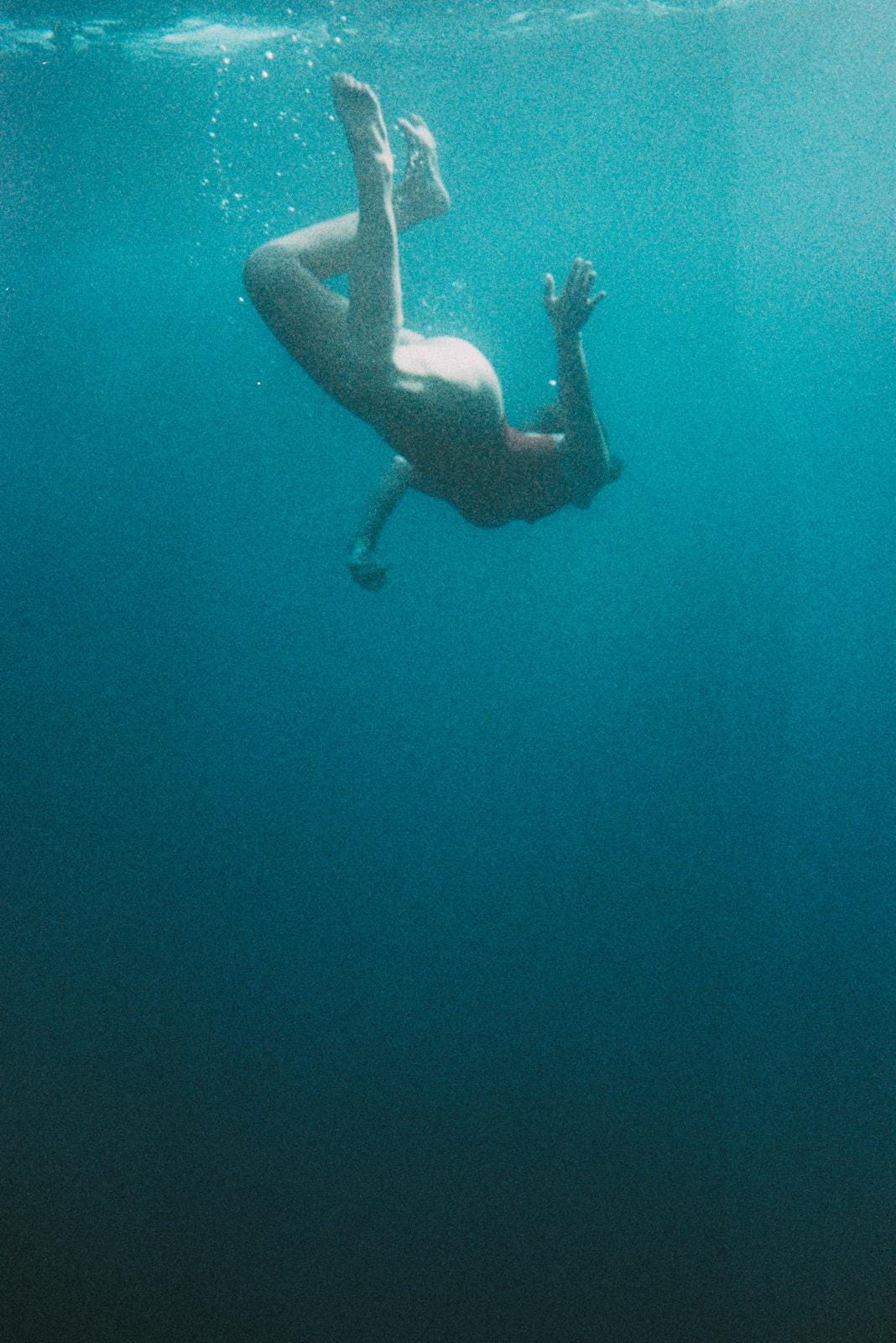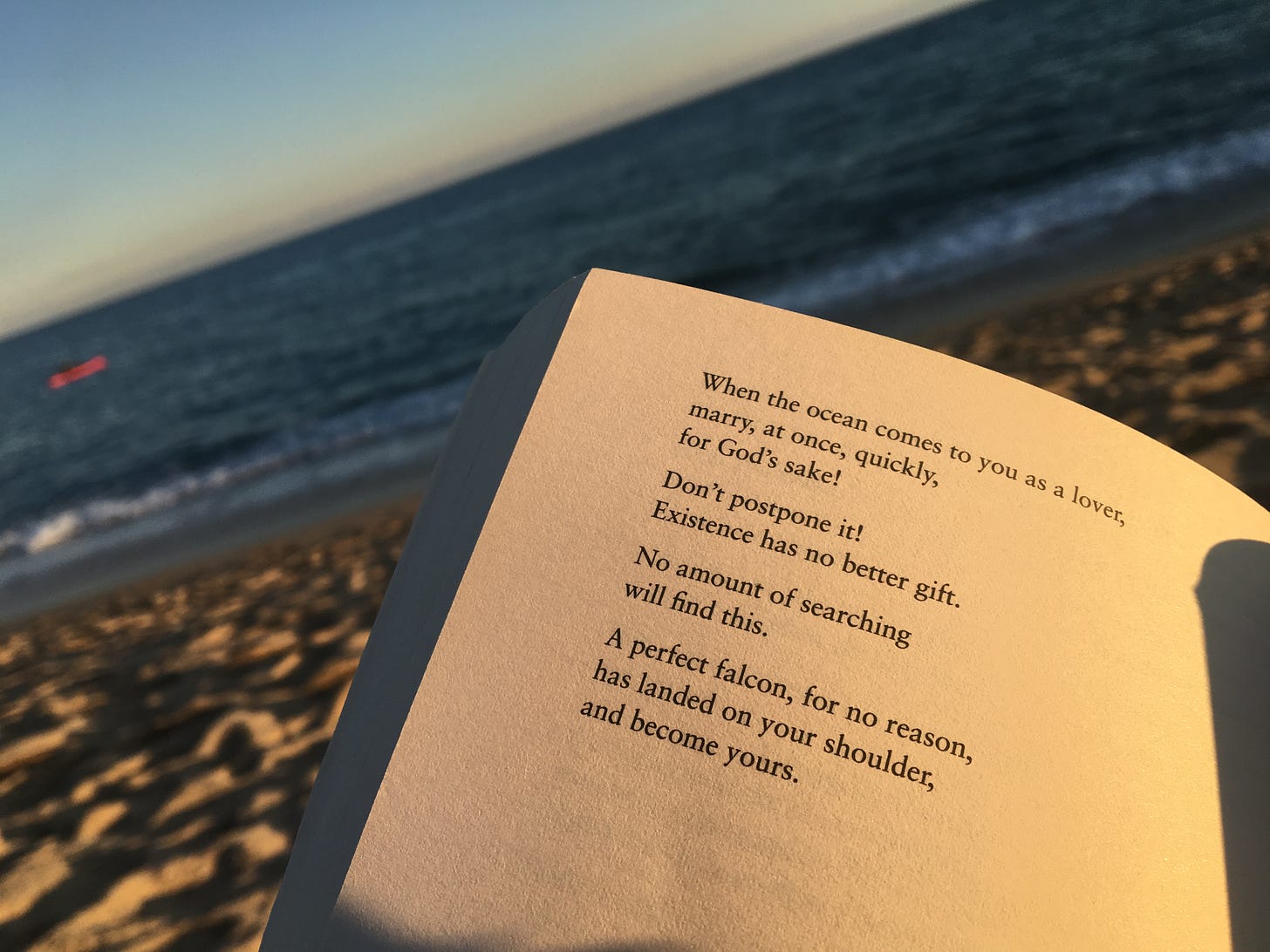I inherited love for the sea from two people that I never knew: my grandfathers.
The house I grew up in was full of shells that both had collected in their oceanic adventures. My grandfather on my mother’s side, who named his daughter Marina, died when I was one year old, so I do not have many memories of him except the stories of the shells that he had picked up in the Red Sea as he travelled. As a child, I would spend afternoons putting these shells, sometimes bigger than my head, to my ear to “listen to the sea”, I found calm in this.
Although he didn’t die until I was well into my teenage years, my father’s father was not present, and so again my relationship with him was created through stories and sea memorabilia. My father once told me that his father was spearfishing in the Mediterranean when a moray eel bit his legs; my grandfather was so at ease in the water that he did not panic, instead, he calmly swam to the shore and asked for help with the eel still attached to his leg.
To me, the sea is a container of joy, calm, sorrow, and immense love. To this day, I leave post-its for my friends when I leave a place: “I’ve gone to see the sea” I write, and they immediately know I am having a contemplative day. I promise you that I have in the past had butterflies in my stomach before going to the sea as if I was going on a date with someone- which you could argue I was.
Change is the only constant, and the ocean is the biggest testimony of this truth. The Sun’s heat creates the winds, which transform into waves, that eventually die in turbulence on the shore, only to go back in. The sea is in constant movement, but it is an orchestra with many directors. In fact, this movement is dictated by a polyphony of things: winds, the moon, the sun, gravity, objects, and changes in the climate all orchestrate the sea’s temperament.
I want to think of waves as the mushrooms of the sea, the fruiting body of a process that begins much earlier than when it manifests. To see a fruiting body, be it a wave or mushroom, is an honour, a gentle gift from nature involving us in bearing witness to its processes. For this, we should be thankful.
Julia Armfield writes that “Almost everything that lives in the ocean is also made up of the ocean, to some degree, rather like the way we inherit mitochondrial DNA from our mothers, and our cells likewise hang around in our mothers’ bloodstreams for years after we’re born,” and as I have mentioned in The Great Exhale, we contain the ocean to some degree, as ocean and blood composition sometimes overlaps.
When I stop and think of the sea, I am reminded of the immense lessons it teaches. As an anthropocentric species, we tend to keep a powerful stance on the sea by gaining knowledge of the species that inhabit it and understanding its processes. Still today though, there remains some mystery on sea behaviour, and still so much to learn, despite our reliance on the ocean for centuries.
If there is something that the sea does well, it is to hold, to contain, something that we have often exploited. The ocean has contained my pain, screaming and crying underwater is extremely liberating and I have done it many times (and urge you to try it), it contains millions of particles from humans from all walks of life, dead or alive, all merging together in unison, it contains the microplastic that exists everywhere by now which we won’t stop using.
It also contains the memory of crimes and exploitations: the sea has bore witness to the extraction of human beings from their lands, transported, humiliated, and forced to work in a foreign land. Today, it bears witness to the chosen ignorance of governments in the face of the obvious: that human beings will always take a chance to be free from economic, social, and political oppression.
We think of the sea as a source of food, refreshment, entertainment, and oppression but seldom have I observed narratives about the sea that speak of liberation. Someone who has done this is Alexis Pauline Gumbs in her book Undrowned: Black Feminist Lessons from Marine Mammals. Gumbs states a clear intention at the beginning of the book, that it is for readers to go through a process of expanding our empathy and the boundaries of who we are, to become more fluid by identifying with the experience of someone different, in this case, marine mammals.
Here is an excerpt from the book:
Three Lies About Sharks That Humans Have Used to Justify Their Own Violence and Alienation that Sharks Will No Longer Tolerate:
That Sharks travel alone. Translation: Cultivate your sharp individuality (Not so. The Blacktip reef shark, for example, is highly social, and finds safety in numbers. Community is the stronger approach)
Sharks are powerful and effective because they hide. Translation: No one will love you if they see all of who you are (Not so. For example, Blacktip reef sharks jump out of the water and flip in the air four times even while hunting. You are fierce from every angle.)
Sharks spend more time sharpening their teeth than opening their gills (Do you need a translation here? BREATHE
The ocean bears witness to overfishing, it holds whatever we throw in it, and it contains life even when it is least expected. We have records of our planet’s ancient sea levels, ocean currents and atmospheric weather patterns all provided by the sea itself: in coral reefs, plant pollen, and oceanic sediments.
Recently I was reading Waves and Beaches: the powerful dynamics of Sea and Coast by William Bascom and Kim McCoy. It is a fascinating read and very informative, but I was surprised to see how the narrative of the ocean was approached in the Prologue:
“Is there anyone who can watch without fascination the struggle for supremacy between sea and land? The sea attacks relentlessly, marshalling the force of its powerful waves against the land’s strongest points”
The war metaphors are simply something I do not relate to anymore, something that I feel is embedded in a patriarchal approach to knowledge where struggle and violence dominate language. A more sensuous approach would read:
“Is there anyone who can watch without fascination the eternal dance between sea and land? The sea caresses the land relentlessly, almost like it is touching it for the first time, again and again, always coming back. Perhaps an act of love.”
Sea narratives have been tainted by humans to justify extraction and colonisation, and I want us today to see the sea as the poetic antidote it is. Let’s look at some etymology. The word revolution comes from the Latin word revolutio, to turn back. A cyclical recurrence. When we observe a timeline of revolutions through the years, they look like waves. What happens in the sea is revolutionary, a constant reminder that change is always possible. In a world where it is easier to imagine the end of the world than the end of capitalism, perhaps we can look at the sea for answers.
Happy World Oceans Day.
Much Love, V
Thank you for reading today’s Ode to the Sea. This community is growing beautifully and the essays are evolving outside of here as conversations, workshops, and classes. if you think the work of deconditioning from the systems that inhabit us is important, and you appreciate this work, consider becoming a paid subscriber. You will get discounts on workshops, embodiment practices, expert advice, curated reading lists straight to your email, exclusive writing, access to audio and more. But mainly, you would be supporting my work and therefore my heart.
🐚 💧 🦪 For paying subscribers I have left a curated playlist to listen to by the sea, another one if you don’t have the sea too near but want to feel like you do, a call to presence inspired by Alexis Pauline Gumbs’ work, and two interesting reads related to the topic.
I have also added a new session where I highlight the work of people that I resonate with and which is in line with the theme of the essays, I called it “Elevation Station”. Like this, you can always discover a new artist, initiative, or creative doing inspiring and relevant work.
Keep reading with a 7-day free trial
Subscribe to Waves to keep reading this post and get 7 days of free access to the full post archives.







